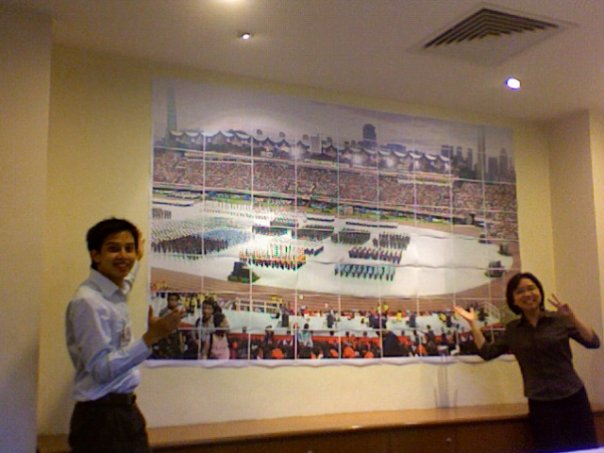
Most people do not know the transformative power of asking for help. No one has ever rejected me especially when I was younger when I asked for advice, or concrete help to move on with my next learning journey.
If I were to posit a reason, it might be due to our academic system, where everyone wants to look perfect and score exceptional grades, hence asking for help is akin to a sign of weakness. Conversely, I never wanted to be perfect or be a good student, so I was always asking for help from my classmates, from “referencing” the daily homework to outright photocopying their files on my teachers’ instructions as I always lose many of my worksheets.
The most vivid example I have about how asking for help transformed my career trajectory is when I was 19 in 2008. Fresh out of polytechnic, and having interacted with Mr Liak Teng Lit (then CEO of Alexandra Hospital) through a final year marketing project for Community Chest, I emailed him if I could shadow him before my National Service, so I can understand how a CEO works. I also added I didn’t need to get paid, I just wanted to learn. Looking back, I am unsure why I had the courage to ask, I just did. The worst case scenario is a polite rejection, and that’s fine too.
He replied positively, and said his Head of Corp Comms at that time, Ms Yen Tan would get in touch with me. After I was formally hired as an intern, on my first week of work, Mr Liak took the time to interview me on skillsets and interests. He learnt I was self taught in website programming, as well as photography and print design skills, combined with marketing diploma. After a few days deliberation, he offered me two options.
- Option 1: Work together with vendors to produce a coffee table book commemorating the milestones of the hospital. If I remember correctly, it should be the 70th year since its founding by the British colonial government.
- Option 2: Work together with vendors to build a brand new website, as it was pretty dated and had a poor user experience. The work scope involved first talking to patients, CSOs, nurses, doctors and other stakeholders, distill the main requirements, issue a tender, interview and choose a vendor, and work with vendor till completion.
As someone who is looking towards the future, obviously I would choose Option 2. Who reads coffee table books, even in 2009? It would mostly be a vanity project, and not benefit as many people as a well-built website. As I only had about 6 months from the time I joined to the time I had to enter National Service, I was involved in the project till the stage of content population but did not get to launch the new website. It might sound incredulous, but I was given immense responsibility as an intern, having the freedom to provide inputs, interview stakeholders, discuss the web standards to be used and work on wireframes. Over the months working at the hospital, Mr Liak and Ms Tan also frequently checked in with me on my status, and sometimes brought me along for non-confidential but significant meetings to listen in.
These are immense privileges, just because I asked.
—
Through this internship, I met Ang Yuit, who was the boss of the website development vendor we eventually chose. When I dropped out of OCS in NS due to medical reasons, he managed to pull me into his company as an NSF to work on NDP website design in a civilian office. Because of this detour, when I was eventually posted back to my unit once the NDP project was completed, I met a new friend who introduced me to the fitness industry.
Understanding the fitness industry, and combining with my sourcing knowledge I gained in China while on exchange, started my first successful business.
—
This is perhaps the strongest story, though not the only one, where people have helped me simply because I asked for help or guidance. I hope this will encourage you to ask for help, as and when you need it.


Leave a Reply